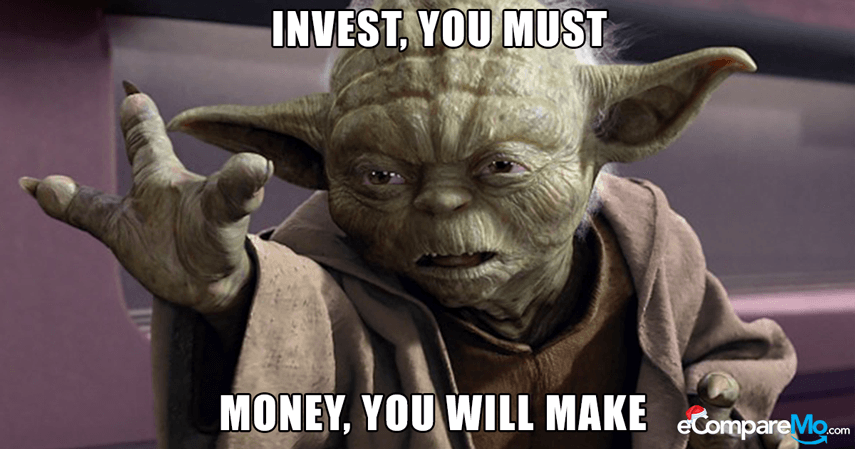There are allot of good reasons to become a freelance software developer. However, the decision is quite complex, as there are many equally good reasons to stay working as a full time employee. The choice will dependent mostly on your personal traits and preferences. In this post I am trying to summarize my decision-making process and the things to keep in mind when thinking about taking the leap of faith as a self-employed contractor or freelancer.
The drawbacks of working as a freelance developer
Working more than 40 hours per week

A freelance developer has allot more things do. For example searching for a new assignment, networking, marketing, administration, purchasing and studying. All these tasks will be on top of your billable hours. I have chosen to work 40 hours per week for my next contract. However, it is quite common to work 36 or 32 hours to compensate for the additional entrepreneurial overhead.
For example, in the weeks before getting my first assignment I had 3 weeks where I worked approximately 60 hours per week. This included the 40 hours for my current employer and additional 20 hours to search for my first assignment and time to prepare my self for the switch.
If you are not prepared to have a “month in between”, when you are not being payed while you are looking for an assignment, you will have to search for a new assignment while you are still working.

It is however common to plan a long vacation in between of contracts. E.g. Switch contracts in the summer and combine that with a 1 month holiday abroad. Corona and remote working has made this allot more attractive.
You have no insurances

If you would like to have the same security as an employee, you need have the following security products:
Professional liability insurance, corporates liability insurance, disability/sickness insurance, unemployment insurance, pension and perhaps even others that I did not account for. Some of these, such as the disability insurance, are quite expensive.
You will not build anything “big”

Most contracts range from 6 months till 2 years. Some companies are extending them up to 4 years. However, working for the same company, longer than 1 year might get you in trouble with the Dutch tax authority. As there is a law called DBA, which dictates that: working longer than 1 year for the same company might mean that you are actually supposed to be an employee. Costing you tens of thousands of additional tax payments.
I plan to switch contracts yearly.
You will always be an “external contractor” not part of the core team.

You need accept that you will be treated as a “second rank” worker. You are a hired gun that will leave soon. There is no added value in investing in you.
Does the team have a team-building activity? You will not be able to join or you will need to pay it your self.
Do they have a “training” you are most likely not.
Is there more “fun” work todo? Most likely someone from the core team will be picking that up.
To work as a freelancer, you should be able to make friends quickly and say goodbye easily.
Fun and innovative work pays less

Fun and innovative work is highly valued by most developers. This drives the price down for the most attractive assignments. On the other hand, it is very attractive to do very specialized, perhaps legacy projects to earn allot more money. However, you need to pay attention. If you will be focusing on legacy applications or specific technology, you might find yourself in a position that your skills have become obsolete and you will be having trouble to find an assignment. On the positive side, you are free to do what you like. Good or Bad choices, you own them.
The benefits of working as a freelance developer
More net disposable income per year.

On average your income per year will double even after paying for insurance and pension. However, keep in mind that you are doing allot of non-billable hours on top of the 40 billable hours per week.
Freedom to re-invest your revenue as you see fit

A freelance developer is free to use his revenue as he sees fit, as long he is aiming to earn more money.
For example: A freelance developer can hire other freelancers from Russia, Ukraine or India to develop a product. Need help with paper work? Hire a virtual assistant! Do you require a video editor or social media marketer to build your brand? Hire them!
All these options cost money, however the costs are deducted from you revenue, which is before taxes.
Doing the same thing while you are working full time as an employee is approximately twice as expensive.
For example: If you were trying to build a product next to your full time employment, you will be spending the money that your boss paid you to pay a designer, a marketer and some developers.
Each dollar you spend has already been taxed with income tax. While if you are a freelance developer you can purchase the same services before taxes. Below you will find a very simplified calculation to visualize the pre-tax benefit.
Freelancer:
– Revenue per month: €10000
– Purchase some service to bootstrap a SaaS product 3000 euro
———————-
– Gross income = 7000
– Pay income tax +- 40% = 2800
———————-
– Net income after taxes = 4200
Employee:
– Gross income €10000
– Pay income tax(40%): €4000
———————-
– Purchase some service to bootstrap a SaaS product 3000 euro
———————-
– Net income after taxes = 3000
Someone who will be bootstrapping product development next to a normal employment will pay 1200 euro more than a entrepreneur that is working as a freelancer.
This is also one of the main reasons I have chosen to freelance, as it gives me more freedom and possibilities to accomplish my dream of bootstrapping a start-up.
The same benefit applies also to equipment, yes that RTX 3090 TI can be a necessity to do your work properly on your ultra wide UHD, as you have the ambition to start a game dev studio in the future 🙂
For example: I have purchased a XPS 15 dell laptop, the most expensive money can buy. €3000 including consumer taxes.
While as private person you will be paying the full €3000 for it.
I do not need to pay the consumer tax, which is €520
I get additional tax benefit for investments which is approximately €280.
And all this is BEFORE taxes, so the benefit mentioned earlier still applies.
So the same laptop costs me approximately €1300 less compared to a private person purchasing it.
Freedom to choose how you insure your future self

Instead of saving for retirement you can choose to invest in stocks, pay of your mortgage, start or invest in a second business or buy bitcoins if you consider that a smart investment for the future 🙂
Additionally, you can choose yourself if you are going to invest in a disability/sickness insurance, I know I will. One that also covers bouldering, soccer and snowboarding incidents 🙂
However, I will not get an unemployment insurance, as I do not expect to be unemployed any time soon. While as an employee you always pay for the social insurances and this way you indirectly finance the less sustainable professions.
Freedom to choose your own assignments

You dictate your own price. Is there a project you really like? You can underbid the competition.
Is there a project that you are not experienced with but you are confident you will be able to quickly get up to speed? Study, prepare your self for the interview, slightly oversell your experience, bid low and you will most likely be able to get a contract that is in a field you would like to grow into.
Only do this if you are willing to invest allot of your free time to study next to the job and only when you are confident that you will be quickly up-to-speed. I don’t think the company will appreciate learning allot on the job 🙂 The second contract will be most likely easier as you have gained some real experience.
Huge motivational boost

When your work, network, experience and reputation are directly tied to your revenue, it gives a motivation boost that I never experienced during a normal employment. Studying in the evening to get a contract you like, is on an other level than studying for a yearly “performance review” commitment. Giving 110% at your work? No doubt, as your reputation will open allot of doors. Adding value to others? Definitely. As every person you help, opens a door for new and better contracts.
The world is your playing field

As a freelancer or contractor you are able to work for any company in the world. Corona and remote work has made that possible. Perhaps my next contract will be for a Norwegian or Swiss company 🙂
I value freedom and possibilities, I believe that taking risks, is the best way to learn, improve and achieve more in life. I hope this gave you an insight in why I became a freelance software developer.
Do you have some other pro’s and con’s that matter to you? Or do you have some unanswered questions? Please let me know in the comment section! And I will happily answer them 🙂
Best Regards,
Igor